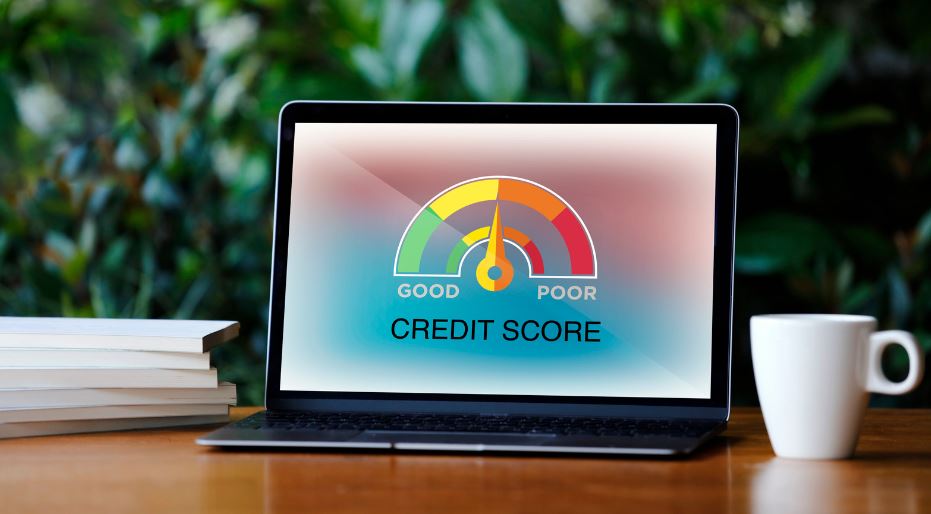Are you curious about your financial health? Your credit score holds the key to unlocking a world of opportunities—from securing loans to getting approved for that dream apartment. But do you know how to check credit score in India? Let’s dive into this essential aspect of personal finance and learn how you can stay on top of your credit game!
What is a Credit Score?

A credit score is a numerical representation of an individual’s creditworthiness, typically ranging from 300 to 850 in the United States. This score is calculated based on various factors such as your payment history, credit utilization, length of credit history, types of credit accounts, and new credit inquiries.
Lenders use credit scores to evaluate the risk of lending money to an individual; generally, higher credit scores indicate lower risk to lenders, making it easier to qualify for loans, credit cards, and better interest rates. Keeping a good credit score is important for financial stability and access to credit.
Understanding your credit score is crucial for managing your finances effectively and making informed decisions about borrowing money. By monitoring your score regularly, you can track changes over time and take steps to improve it if needed.
Why Credit Score is Important?
Credit scores are important for a variety of reasons:
- Access to Credit: A good credit score makes it easier to qualify for loans, credit cards, and other financial products. Lenders use your credit score to assess the risk of lending you money.
- Interest Rates: A higher credit score typically leads to lower interest rates on loans and credit cards. This means you can save money over time by paying less interest.
- Insurance Premiums: Some insurance companies use credit scores to determine premiums for auto or home insurance. A good credit score can result in lower insurance costs.
- Employment Opportunities: Some employers may check credit scores as part of the hiring process, especially for roles that involve financial responsibilities. A good credit score can reflect positively on your overall responsibility and trustworthiness.
- Renting a Home: Landlords may use credit scores to evaluate potential tenants. A good credit score can increase your chances of securing a rental property.
- Utilities and Services: Utility companies and service providers may check credit scores before offering services. A good credit score can help you avoid paying security deposits.
- Financial Stability: Overall, a good credit score is a reflection of responsible financial behavior and can contribute to your financial stability and well-being.
It’s important to monitor your credit score regularly and work towards maintaining a good credit history to enjoy the benefits it offers.
How to Check Credit Score in India?

In India, you can check your credit score through credit bureaus like CIBIL (Credit Information Bureau India Limited), Equifax, Experian, and CRIF High Mark. Here’s how you can check your credit score:
- Visit the Credit Bureau Website: Go to the official website of one of the credit bureaus mentioned above.
- Create an Account: Register on the website by providing your personal information.
- Provide Required Information: You will need to provide details such as your PAN card number, Aadhaar card number, mobile number, email address, and other identification details.
- Authenticate Your Identity: The bureau will verify your identity. You may receive an OTP on your mobile number for verification.
- Check Your Credit Score: Once verified, you can access your credit score on the website. The credit report will also include details of your credit history, outstanding loans, repayment behavior, etc.
- Review Your Credit Report: It’s important to review your credit report for accuracy. If you spot any errors, you can raise a dispute with the credit bureau to get them corrected.
- Monitor Your Credit Score: Regularly monitoring your credit score can help you track your financial health and take steps to improve it if needed.
Remember that checking your own credit score does not impact your credit rating. It’s a good practice to stay informed about your credit score to make better financial decisions.
Factors Affecting Credit Score
Several key factors can influence your credit score. Here are the primary factors that affect your credit score:
- Payment History: Your payment history is one of the most significant factors influencing your credit score. Late payments, defaults, and bankruptcies can negatively impact your score.
- Credit Utilization: This factor refers to the amount of credit you’re using compared to your total available credit. High credit utilization can lower your score.
- Length of Credit History: The length of time you’ve had credit accounts open impacts your score. A longer credit history can be beneficial if managed responsibly.
- Types of Credit: Having a mix of credit types, such as credit cards, installment loans, and mortgages, can positively impact your score.
- New Credit Inquiries: Applying for multiple new credit accounts within a short period can temporarily lower your score, as it may indicate financial stress.
- Public Records: Bankruptcies, foreclosures, and judgments can significantly lower your credit score.
- Credit Age: The average age of your credit accounts also plays a role in determining your credit score. Older accounts can have a positive impact.
By understanding these factors, you can take steps to manage your credit responsibly and improve your credit score over time. It’s important to make timely payments, keep credit utilization low, and maintain a healthy credit mix to ensure a good credit score.
How to Improve Your Credit Score?
Improving your credit score is crucial for better financial opportunities. Start by making timely payments on all your bills and debts. Late payments can significantly impact your credit score negatively.
Keep your credit card balances well below the limit to maintain a low credit utilization ratio. This shows lenders that you are responsible with credit usage. Avoid applying for multiple new credit accounts within a short period, as it can signal financial distress to lenders.
Regularly check your credit report for any errors or discrepancies that may be dragging down your score. Dispute any inaccuracies with the relevant credit bureau to ensure an up-to-date and accurate report.
Diversify the types of credit you have – such as installment loans and revolving accounts – to showcase a healthy mix of credits in your profile. By following these steps consistently, you can steadily improve and maintain a good credit score over time.
Tips for Improving Your Credit Score

To improve your credit score, start by making timely payments on all your existing debts. Late payments can negatively impact your creditworthiness, so set up reminders or automatic payments to stay on track.
Another tip is to keep your credit utilization low; try not to max out your credit cards as it signals financial strain. Aim to use only a small portion of the available credit limit.
Regularly check your credit report for errors and dispute any inaccuracies promptly. Monitoring your report can help you spot potential issues early on.
Avoid opening multiple new accounts within a short period as this can make you appear risky in the eyes of lenders. Stick to a few well-managed accounts instead.
Be patient and consistent with these practices – improving your credit score takes time and effort but staying committed will pay off in the long run.
Conclusion
Remember that factors such as payment history, credit utilization ratio, length of credit history, types of credits used, and new credit inquiries all play a role in determining your credit score. By practicing good financial habits like paying bills on time, keeping balances low on credit cards, maintaining diverse types of accounts responsibly, and avoiding opening multiple new accounts at once; you can work towards improving your credit score over time.
So, stay informed about your financial standing by checking your credit score periodically. This simple yet powerful action can help you secure better loan terms from lenders when needed in the future. Empower yourself with knowledge about your finances and make wise decisions today for a brighter tomorrow!
FAQ – How to Check Credit Score in India?
How often should I check my credit score in India?
It’s advisable to check your credit score regularly, at least once a year, to monitor your credit health and identify any errors or discrepancies that may affect your creditworthiness. Additionally, you may want to check your credit score before applying for loans or credit cards to assess your eligibility and negotiate favorable terms.
How long does it take to improve my credit score in India?
Improving your credit score in India is a gradual process that depends on various factors, such as your credit history, financial behavior, and the actions you take to address any negative factors. While some improvements may be seen relatively quickly, significant changes to your credit score may take several months or even years to achieve.
Can I dispute errors on my credit report in India?
Yes, you have the right to dispute any inaccuracies or discrepancies on your credit report with the credit bureau in India. You can initiate the dispute process by submitting a formal request along with supporting documentation to rectify errors and ensure the accuracy of your credit information.




